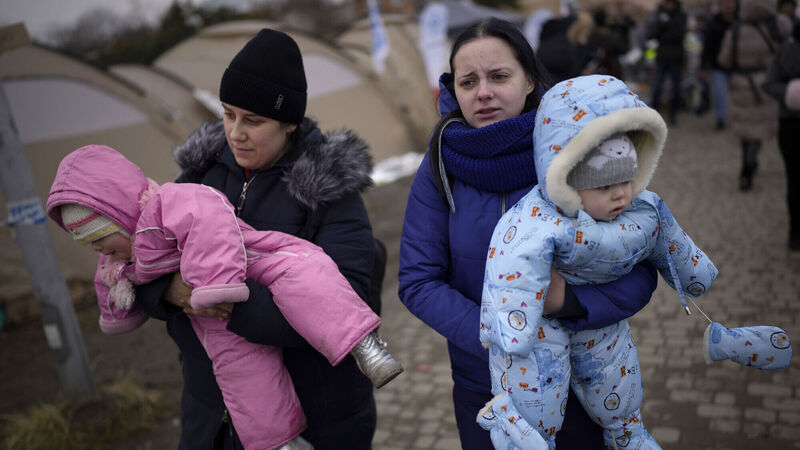Sean Murray: A town the size of Crosshaven that is the first port of hope for so many Ukrainians

Women and children crossing from Ukraine to Medyka in Poland on Wednesday. This small town in the southeast of the country has been one of the busiest border crossings. Photo: AP/Daniel Cole
Medyka is a tiny town which has a population roughly that of Crosshaven in Cork. More than half of the two million people who have fled Ukraine since the Russian invasion have gone to Poland and this small town in the southeast of the country has been one of the busiest border crossings.
Tens of thousands arrive each day at Medyka and nearby Przemsyl and so it is where most of the world's media has descended to witness the mainly women and children fleeing. When they arrive they’re greeted by aid agencies distributing all manner of supplies.














